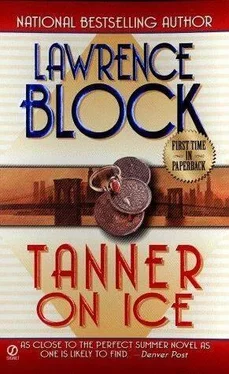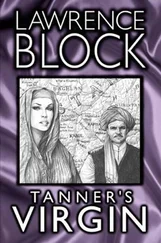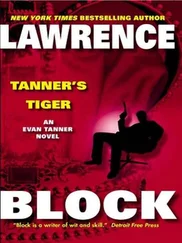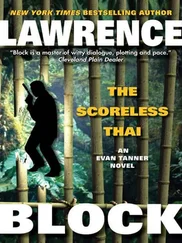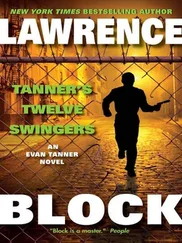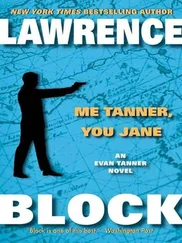“You’d give the fellow a heart attack,” I said. “What do you suppose he was looking for, anyway? I know there are all kinds of things you can’t take out of Burma, but what is there that anyone would want to smuggle in?”
“Drugs,” he said.
“Isn’t that coals to Newcastle? I thought most of the world’s opium came out of the Golden Triangle.”
“I wouldn’t say they were rational about it,” he said. “I can’t imagine why anyone would want to bring drugs in. The people here haven’t any money, so what kind of market would they be? They can barely manage a couple of kyat a day for betel nut. My sense is they’re fearful of moral corruption. That’s why they sealed this place off all those years, and now that they want the tourists they’re terrified of what we might bring in with our luggage. Well, it’s Western ideas that they’ve every reason to fear, and there’s no way to catch them up in a Customs queue. I say, do you want to share a taxi into town? I’m booked at the Strand, but I could drop you anywhere along the way.”
The car was a blue Toyota, the driver a slim Burmese with an outgrown brush cut who seemed to understand English but didn’t offer any of his own. He stowed us in the back seat and our bags in the trunk and bent over the wheel.
“Sun’s out,” my companion said, “and it’ll be a scorcher in a couple of hours. First time in Burma? Business or pleasure?”
“Pleasure,” I said. “Though if I happen to run into any business opportunities-”
“You won’t turn a blind eye to them. What’s your line?”
“Import-export,” I said. “It’s my uncle’s firm, and he told me to keep my eyes open. But I’m really here as a tourist.”
“ Rangoon, Mandalay, and the ancient city of Bagan, right?”
“The usual places, I suppose.”
“Well, the natural sights to be seeing. And it’s not as though they’ll let you go anywhere you want. Certain regions are off-limits. They’ll bend the rules for an organized tour group, but the man on his own who wants to stray from the beaten path won’t find it easy.”
At the roadside, an enormous billboard loomed, its Burmese legend helpfully rendered in English as well. LOVE YOUR MOTHERLAND, it counseled. RESPECT THE LAW.
“The gospel according to SLORC,” he said. “Inspiring, don’t you think?”
“It’s longer in Burmese,” I remarked. “I suppose English is a more concise language.”
“It takes fewer words to get your point across than French or Spanish. I don’t know how it compares with Burmese.” He leaned forward, a barrel-chested man in his forties, his black hair gone snow white at the temples. “Of course,” he said, “there might be more to the Burmese message.”
“How do you mean?”
“They may not have translated all of it. It might say something like ‘Love your motherland and respect the law or we’ll lock you up and throw away the key.’” I chuckled, and he said, “I asked your line and didn’t tell you mine. I’m an agronomist, trying to sell the Burmese on the idea of putting more into the soil so they can get more out of it. Human waste only goes so far.”
“Is that what they use?”
“If you get close enough to the Irriwaddy, you’ll swear it doesn’t all go on the fields. Name’s Harry Spurgeon.”
“Evan Tanner.”
“And you’re an American. What part of the States?”
“ New York.”
“Never got there myself. Spent some time on the West Coast – Portland and Seattle. Vancouver, but that’s not the States. And I got to Kansas City once. Now, there’s a town. Ah, another uplifting homily from SLORC.”
It was another of the same white letters on a red field, but the message was different, something about the duty of the citizen to reject influence from outsiders.
“I wonder who handles their public relations,” Spurgeon said. “That’s quite the thing for the tourists, and who else travels this road? ‘Welcome to Myanmar, and keep your outlandish ideas to yourself.’ But of course that’s not what it means.”
“What’s it about?”
“Our Lady of Perpetual Indignation,” he said. “Aung San Suu Kyi.”
I was looking at the back of our driver’s head when Spurgeon spoke the name, and it seemed to me his neck muscles went rigid at the sound of it. I nudged the Englishman’s arm, nodded at the driver.
“No harm,” he said. “You wouldn’t want to engage a Burmese in conversation on the subject. Might be awkward for him. But it doesn’t matter what he overhears, so long as he doesn’t need to acknowledge it.”
“But foreign influences,” I said. “How-”
“Ah. Well, she lived abroad for a time, didn’t she? Got an Oxford education and married a don. Came back to her homeland, which you or I would regard as an act of patriotism, and foolhardy in the bargain. SLORC’s line is she’s been tainted by her time and associations abroad.”
“Are they serious?”
“No, they’re just trying it on. The Japanese could take a stand like that and be sincere about it. Look at the lot who emigrated to Peru. When their sons and daughters tried to move back, they were regarded as gaijin. They’d lost their Japaneseness for having been raised overseas. But the Burmese aren’t quite that xenophobic. This is just SLORC trying to get around the fact that her father is the greatest hero the place ever had. There’s a street named after him and the city’s major market, and there are statues and pictures of the man everywhere. So they’ve got to say she’s not a true daughter – of her father or of Burma, either. She went abroad. She got corrupted by foreign ideas. I don’t know if this fellow buys it” – he indicated the driver – “but if he does he’s an exception. The people voted for her, and they’d vote for her again if they got the chance. But SLORC’s got the guns and the soldiers, and they’re not going to make the mistake of calling another election. Why embarrass themselves?”
“Why bother with the billboards?”
“Well, I wouldn’t say the campaign’s the work of a genius, Tanner. It’s entirely wasted on visitors, unless the idea is to show who’s in control. As far as the native populace is concerned, I daresay there’s something in the Big Lie theory. Say it loud enough and often enough and people will believe it in spite of themselves.”
“I suppose.”
“And there’s a ‘Big Brother is watching’ effect, a verbal equivalent of having an oversized statue of Mao or Lenin forever glaring down at one. Now there’s an importer’s opportunity!”
“I beg your pardon?”
“The Lenin statues,” he said. “They’ve pulled them down all over Russia, and nobody has any idea what to do with them. They’ve carted some of them to the smelter, but there are still plenty left. Here’s what you do, Tanner. Get yourself over to Russia and find the largest and tackiest one you can. Then see if you can’t peddle it to that town in Arizona that bought the London Bridge. Be a perfect companion piece, wouldn’t you say?”
There were more SLORC billboards in Rangoon, along with signs welcoming us to Yangon and a hideous multicolored statue of a child who was evidently the mascot of Myanmar tourism. She had her hair in pigtails and carried a little basket, and if she’d been a living breathing child you’d have wanted to smack her one. In comparison, the billboards looked pretty good.
Spurgeon asked me where I was staying. I hadn’t booked a room, and didn’t want one. I wouldn’t be sleeping, and was traveling light enough that it would be no hardship to keep my pack with me – and a blessing if I had to leave in a hurry. And I wasn’t sure how it worked in Burma, but in a lot of countries they wanted you to leave your passport at the hotel desk, reclaiming it when you left. I didn’t much want to do that.
Читать дальше
